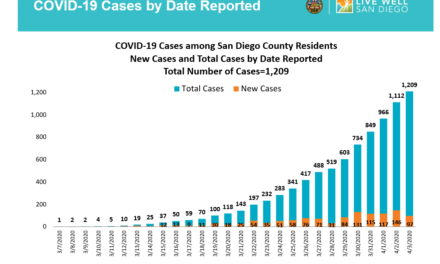
By SDCN Editor
San Diego, CA–A crow found dead in La Mesa on August 31 has tested positive for West Nile virus, County environmental health officials said.
County officials said the crow is the first dead bird to test positive for the virus in San Diego County this year and there have been no locally contracted human West Nile virus cases reported.
According to the Centers for Disease Control and Prevention, West Nile virus is the leading cause of mosquito-borne disease in the United States. The virus is commonly spread to people by the bite of an infected mosquito.
San Diego native Culex and Aedes aegypti mosquitoes can feed off an infected animal, mainly birds, and then bite people, county health officials said.
Most people infected with the virus do not develop any symptoms or illnesses. Those who are infected may develop a mild headache, fever, nausea, fatigue, skin rash, or swollen glands. But in rare cases, the virus can be fatal to individuals.
According to county officials, West Nile virus remains a potentially deadly threat. In 2015, 44 San Diego County residents tested positive for West Nile virus and six county residents died.
There are no vaccines or medications to treat people infected with the virus.
“Mosquitoes like to live and breed near people, in yards, and even inside homes. Some invasive types can potentially transmit diseases not naturally found here including chikungunya, dengue, and Zika — but only if they first bite an infected person,” the County stated in a news release.
County officials say residents can protect themselves from mosquito-borne illnesses by wearing long sleeves and pants or using insect repellent when outdoors. Use insect repellent that contains DEET, picaridin, oil of lemon eucalyptus, or IR3535. Make sure screens on windows and doors are in good condition and secured to keep insects out.
Report increased mosquito activity or stagnant, green swimming pools and other mosquito-breeding sources, as well as dead crows, ravens, jays, hawks, and owls to Environmental Health’s Vector Control Program by calling (858) 694-2888 or emailing vector@sdcounty.ca.gov.




